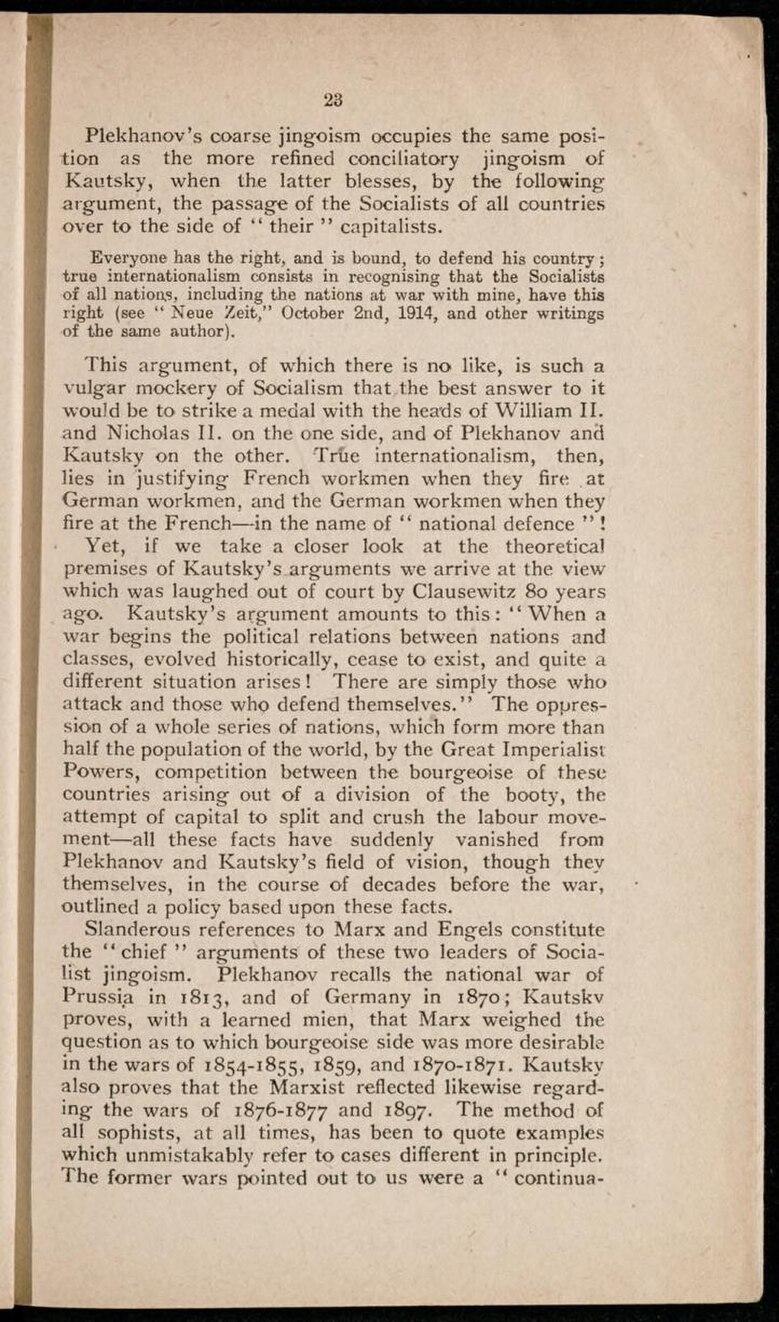23
Plekhanov’s coarse jingoism occupies the same position as the more refined conciliatory jingoism of Kautsky, when the latter blesses, by the following argument, the passage of the Socialists of all countries over to the side of “their” capitalists.
Everyone has the right, and is bound, to defend his country; true internationalism consists in recognising that the Socialists of all nations, including the nations at war with mine, have this right (see “Neue Zeit,” October 2nd, 1914, and other writings of the same author).
This argument, of which there is no like, is such a vulgar mockery of Socialism that the best answer to it would be to strike a medal with the heads of William II. and Nicholas II. on the one side, and of Plekhanov and Kautsky on the other. True internationalism, then, lies in justifying French workmen when they fire at German workmen, and the German workmen when they fire at the French―in the name of "national defence"!
Yet, if we take a closer look at the theoretical premises of Kautsky’s arguments we arrive at the view which was laughed out of court by Clausewitz 80 years ago. Kautsky’s argument amounts to this: "When a war begins the political relations between nations and classes, evolved historically, cease to exist, and quite a different situation arises! There are simply those who attack and those who defend themselves." The oppression of a whole series of nations, which form more than half the population of the world, by the Great Imperialist Powers, competition between the bourgeoise of these countries arising out of a division of the booty, the attempt of capital to split and crush the labour movement―all these facts have suddenly vanished from Plekhanov and Kautsky’s field of vision, though they themselves, in the course of decades before the war, outlined a policy based upon these facts.
Slanderous references to Marx and Engels constitute the "chief" arguments of these two leaders of Socialist jingoism. Plekhanov recalls the national war of Prussia in 1813, and of Germany in 1870; Kautsky proves, with a learned mien, that Marx weighed the question as to which bourgeoise side was more desirable in the wars of 1854-1855, 1859, and 1870-1871. Kautsky also proves that the Marxist reflected likewise regarding the wars of 1876-1877 and 1897. The method of all sophists, at all times, has been to quote examples which unmistakably refer to cases different in principle. The former wars pointed out to us were a "continua-
